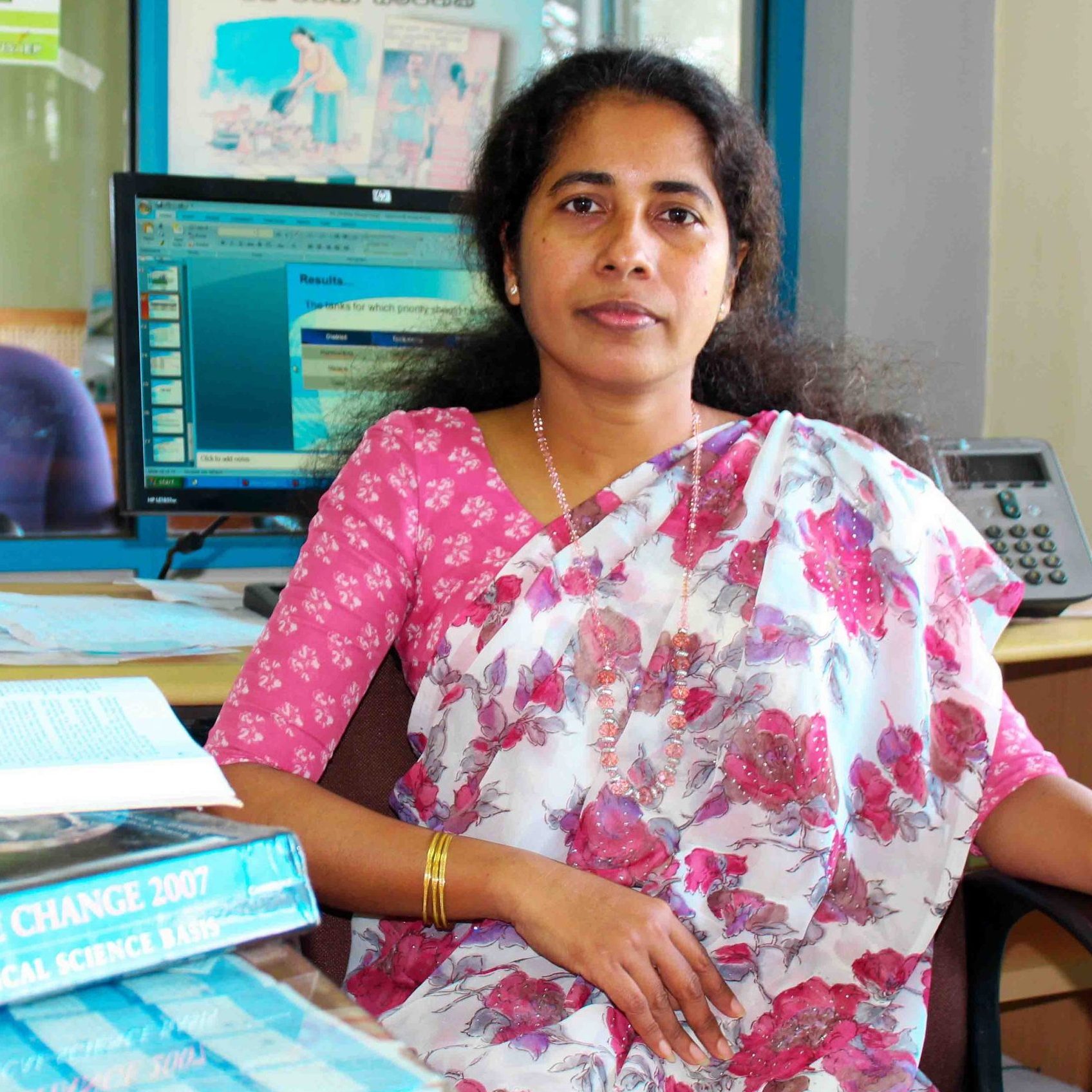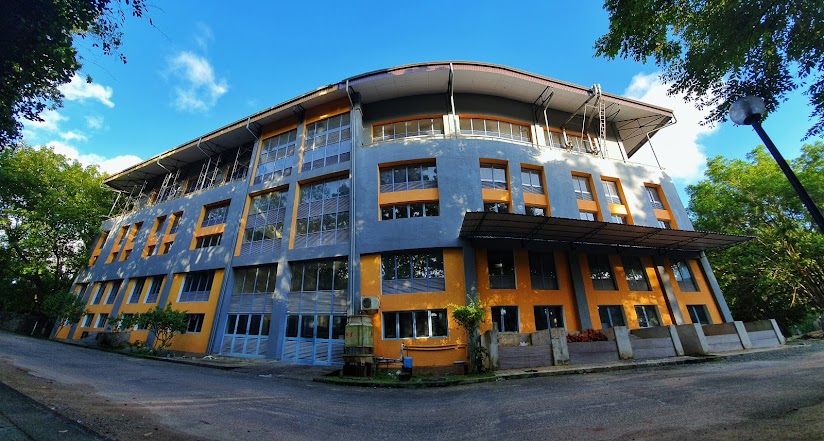Welcome to the Webpage of the Department of the the Civil and Environmental Engineering, Faculty of Engineering, University of Ruhuna. We are located at Hapugala nearby the beautiful coastal city, Galle, in the Southern province of Sri Lanka.
The Department of Civil and Environmental Engineering has become a regional plus national hub for innovation, research excellence and community services in the country. The Department produces 125 graduates annually and these graduates hold key positions in both Industry and Academia, not only in Sri Lanka even in many other countries of the globe.
The field of Civil Engineering is very broad, covering many areas such as planning, design, construction of buildings, highways, bridges, irrigation schemes, water supply schemes, wastewater disposal, hydropower projects, transmission towers for electricity, telecommunication towers, tunnels, underground powerhouses, etc. It is a broad field where technology has been developing very fast that has enabled more and more sophisticated lifestyles for people despite the continuous increase in the global population.
In addition, as a department, we always push beyond the boundaries of knowledge and practice in Engineering through various research activities thus often has received national and international recognition. Currently, the department engages formal courses that lead to M.Phil and MSc degrees in Civil Engineering
The degree programme has the flexibility so that students could make their own choices and provides an environment that prepares students for the world of work. The department strives to provide a very attractive learning environment so that students could gain familiarity with the state of the art technology and practices. An effort is taken to ensure that the desirable engineering graduate attributes are achieved through teaching coupled with advanced learning and assessment schemes. The department has maintained accreditation with the Washington Accord through the Institution of Engineers, Sri Lanka (IESL).
I wish you a very pleasant stay in the Department of Civil Engineering. The staff and I will make every effort to provide an education that will make you a competent Civil Engineer with significant knowledge and skills in design, analysis, synthesis, application, management, etc. who will be able to serve the Civil Engineering profession within and outside Sri Lanka with confidence and distinction.
- Message from the Head
- Organization
- Introduction to DCEE
- Contact Us
- Faculty Virtual Tour
- University Virtual Tour
The Faculty of Engineering, University of Ruhuna was established on 1st July 1999 at Hapugala, Galle. First batch of students was admitted on 27th March 2000. It is the third state Faculty of Engineering in Sri Lanka after those at University of Peradeniya and University of Moratuwa.
The infrastructure for the faculty was well supported and driven by one of the former Minister of Education (the late) Honorable Richard Pathirana. As a result, within a short period of time (in 3 years), a large scale infrastructure complex was built at Hapugala, including three Department Buildings with Laboratories, an Administration Building, a Computer Centre, a Guest House, a Lecture Theater Complex with two large Drawing Offices, three Student Hostels, a Canteen with Medical Unit and Student Center, a Library; twenty Staff Quarters, internal roads and a Security Building. All of these facilities were designed for quick and easy access, and ample provision was made for future expansion.
Academic Departments and Fields of Specializations
The Faculty consists of four Academic Departments, namely Civil and Environmental Engineering (DCEE), Electrical and Information Engineering (DEIE), Mechanical and Manufacturing Engineering (DMME), and Interdisciplinary Studies (DIS). At the commencement, the faculty offered three (03) General Engineering Degree Programs specialized in Civil and Environmental Engineering, Electrical and Information Engineering, and Mechanical and Manufacturing Engineering. The Department of Interdisciplinary Studies was established mainly to extend the support for other three department by delivering courses in Mathematics, Management, Engineering Economics, Communication, Humanities, Social Sciences, Arts, Professional Ethics and other similar multi-disciplinary areas.
Recently, another two (02) fields of specializations; Computer Engineering, and Marine Engineering and Naval Architecture have been introduced to facilitate more preferences for undergraduate students. As a result, the last student intake to the faculty from 2019/2020 A/L Mathematical stream was recorded as 530.
Semester-based System for Engineering Education
From the start, the faculty introduced a semester-based system for Engineering Education of students. In this system, a year is divided into two semesters, and a semester continues for a period of nineteen weeks in total. The time allocation for a semester is further divided as; First Half (7 weeks), Recess (1 week), Second Half (7 weeks), Study Period (1 week), Examination (2 weeks) and Vacation (1 week). The two other Engineering Faculties at Peradeniya and Moratuwa have adopted a similar semester-based system two years thereafter, replacing their old style British system of year-end examinations.
Vision
The vision of the Department is to become an outstanding, well-recognized academic centre of excellence in Civil and Environmental Engineering in the country.
Mission
It is the mission of the Department, to produce highly skilled, dedicated, and knowledgeable civil and environmental engineers who will excel in their chosen careers.
Program Outcomes (POs)
- Ability to apply knowledge of basic science and engineering fundamentals.
- Ability to communicate effectively, not only with engineers but also with the community at large.
- In-depth technical competence in at least one engineering discipline.
- Ability to undertake problem identification, formulation and solution.
- Ability to utilize a systems approach to design and operational performance.
- Ability to function effectively as an individual and in multi-disciplinary and multi-cultural teams, with the capacity to be a leader or manager as well as an effective team member.
- Understanding of the social, cultural, global and environmental responsibilities of the professional engineer, and the need for sustainable development.
- Understanding of the principles of sustainable design and development.
- Understanding of professional and ethical responsibilities and commitment to them.
- Expectation of the need to undertake lifelong learning, and capacity to do so.
Programme Educational Objectives (PEOs)
The Department, in consultation with Industrial Consultative Committee (ICC) and Ruhuna Alumni Association of Civil and Environmental Engineering (RACEE) has developed six programme educational objectives to support the program objectives. Program Educational Objectives (PEOs) explained below is the expected outlook of graduates after five years from their graduation.
- Have the knowledge, skills and tools needed to solve complex civil and environmental engineering problems.
- Are aware of environmental issues associated with air, land and water systems, as well as concerns on sustainability, environmental health and safety issues.
- Are capable of working efficiently with the others in their community, through; effective communication; public relationship and leadership skills.
- Have an understanding of ethical and professional responsibilities of civil and environmental engineers and the impact that their engineering solutions will have on the environment and society.
- Are willing to appreciate the value of a broad-based civil and environmental engineering education, and engage in continuous professional development through lifelong learning, higher education and memberships in professional bodies.
- Are competent in management concerning economics, business, decision making and human resource management.
These educational objectives are promoted and supported by the departmental community of students, faculty and staff, characterised by integrity and by respect for individuals, society, the environment and the engineering profession.
Postal Address
Department of Civil & Environmental Engineering,
Faculty of Engineering,
University of Ruhuna,
Hapugala,
Galle 80000,
Sri Lanka.
Phone Numbers
+(94) 912245766, +(94) 912245767, +(94) 913924732,
Fax
+94 912245762
The Faculty of Engineering, University of Ruhuna consists of four (04) departments and offers five (05) specialization areas at present. The Faculty admits 530 students from Advanced Level (A/L) Mathematics stream from the last year.
The University of Ruhuna is one of the leading universities in Sri Lanka. It was established by a Special Presidential Decree on 1st September, 1978 as Ruhuna University College to fulfil a long cherished desire of the people in Southern Province, Sri Lanka. Hence, the University of Ruhuna has a proud history of more than 40 years and with extending its service to the motherland having 10 Faculties with 57 Departments at present.
University Webpage

